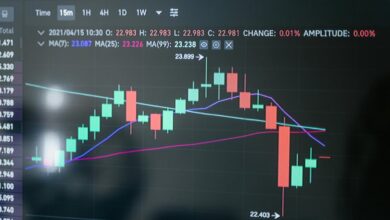Global Business Metrics: 18002045785, 807770319, 25198283, 8002227736, 221170100, 7039916781

Global business metrics such as 18002045785, 807770319, 25198283, and 8002227736 play a crucial role in shaping organizational strategies. These metrics provide valuable insights into customer preferences and market dynamics. Analyzing each metric reveals patterns that influence performance and engagement. Understanding their implications can inform strategic decisions. However, the nuances of what these metrics reveal may hold the key to unlocking new growth opportunities. What insights might emerge from a closer examination?
Understanding the Significance of Business Metrics
Business metrics serve as critical indicators that enable organizations to assess their performance, make informed decisions, and strategize for future growth.
Their strategic importance lies in accurate metric interpretation, which enhances data accuracy and trend analysis.
Analyzing Metric 18002045785: Customer Insights
While organizations strive to enhance their understanding of consumer behavior, analyzing Metric 18002045785 reveals crucial insights that can significantly impact marketing strategies and product development.
By leveraging data segmentation techniques, businesses can identify distinct customer preferences and trends, allowing for tailored marketing approaches.
These insights provide a roadmap for optimizing product offerings and enhancing customer engagement, ultimately fostering a more responsive business environment.
Exploring Metric 807770319: Market Trends
Metric 807770319 provides critical insights into current market dynamics, reflecting the shifting landscape of consumer behavior.
Analyzing this metric reveals emerging consumer preferences that significantly influence purchasing decisions across various sectors.
Understanding these trends is essential for businesses aiming to adapt and thrive in an increasingly competitive environment.
Current Market Dynamics
As companies navigate the complexities of the global marketplace, understanding current market dynamics becomes essential for strategic decision-making.
Market fluctuations influence the competitive landscape, prompting businesses to adapt their strategies accordingly.
Emerging Consumer Preferences
A significant shift in consumer preferences is evident across diverse markets, driven by evolving societal values and technological advancements. Notably, sustainable consumption and digital preferences are reshaping buying behaviors. Businesses must adapt to these trends to ensure relevance and competitiveness.
| Trend | Impact on Market |
|---|---|
| Sustainable Consumption | Increased demand for eco-friendly products |
| Digital Preferences | Shift towards online shopping and digital engagement |
| Ethical Brands | Preference for companies with transparent practices |
| Personalized Experiences | Desire for tailored services and products |
| Subscription Models | Growth in recurring revenue streams |
The Impact of Metric 25198283 on Performance
The analysis of Metric 25198283 reveals significant implications for performance across various sectors.
By employing specific metric analysis techniques, organizations can identify performance improvement strategies tailored to their unique contexts.
Additionally, comparisons with industry benchmarks provide crucial insights into how this metric influences overall operational effectiveness.
Metric Analysis Techniques
Exploring the intricacies of Metric 25198283 reveals significant insights into its influence on organizational performance.
Effective metric visualization aids stakeholders in data interpretation, allowing for clearer understanding of performance trends.
By employing robust analysis techniques, organizations can uncover patterns and anomalies within the data, facilitating informed decision-making.
This analytical approach empowers entities to harness the full potential of Metric 25198283 in optimizing outcomes.
Performance Improvement Strategies
Effective performance improvement strategies hinge on the insightful application of Metric 25198283, which serves as a critical lever for enhancing organizational outcomes.
By establishing performance benchmarks, organizations can leverage this metric to guide data-driven decisions.
This approach not only fosters accountability but also encourages continuous growth, ensuring that performance enhancement initiatives are aligned with strategic objectives and organizational aspirations.
Industry Benchmark Comparisons
Industry benchmark comparisons provide valuable insights into the effectiveness of Metric 25198283 in driving performance outcomes across various sectors.
This metric influences industry performance by enhancing competitive analysis and market positioning. It correlates with improved financial ratios, operational efficiency, and growth benchmarks.
Furthermore, organizations utilizing this metric report better sales metrics and customer retention, ultimately fostering sustainable business success and adaptability in dynamic markets.
Leveraging Customer Feedback With Metric 8002227736
Leveraging customer feedback is essential for businesses aiming to enhance their products and services, and Metric 8002227736 serves as a pivotal tool in this process. It fosters customer engagement through effective feedback loops, allowing organizations to gather actionable insights. Below is a structured overview of how Metric 8002227736 can impact customer interactions.
| Metric | Impact on Engagement | Feedback Loop |
|---|---|---|
| 8002227736 | Increased satisfaction | Continuous updates |
| Customer Surveys | Enhanced responses | Real-time data |
| Engagement Rate | Improved retention | Iterative cycles |
| Net Promoter Score | Loyalty measurement | Actionable insights |
| Response Time | Faster resolutions | Customer-driven change |
Strategic Planning With Metrics 221170100 and 7039916781
While many organizations recognize the importance of metrics in guiding their strategic planning, Metrics 221170100 and 7039916781 stand out as critical components for informed decision-making.
These metrics enhance strategic alignment by providing essential data for performance measurement. Organizations leveraging these metrics can ensure that their strategic initiatives are effectively aligned with overall goals, thus fostering adaptability and long-term success in a dynamic business environment.
Conclusion
In conclusion, the analysis of global business metrics reveals their crucial role in shaping effective strategies and enhancing customer engagement. By understanding these metrics, organizations can better navigate market dynamics and improve overall performance. How can businesses ignore the wealth of insights these metrics provide? As companies strive to adapt to evolving consumer preferences, leveraging data-driven insights becomes not just advantageous but essential for sustained growth and competitive advantage in today’s landscape.




